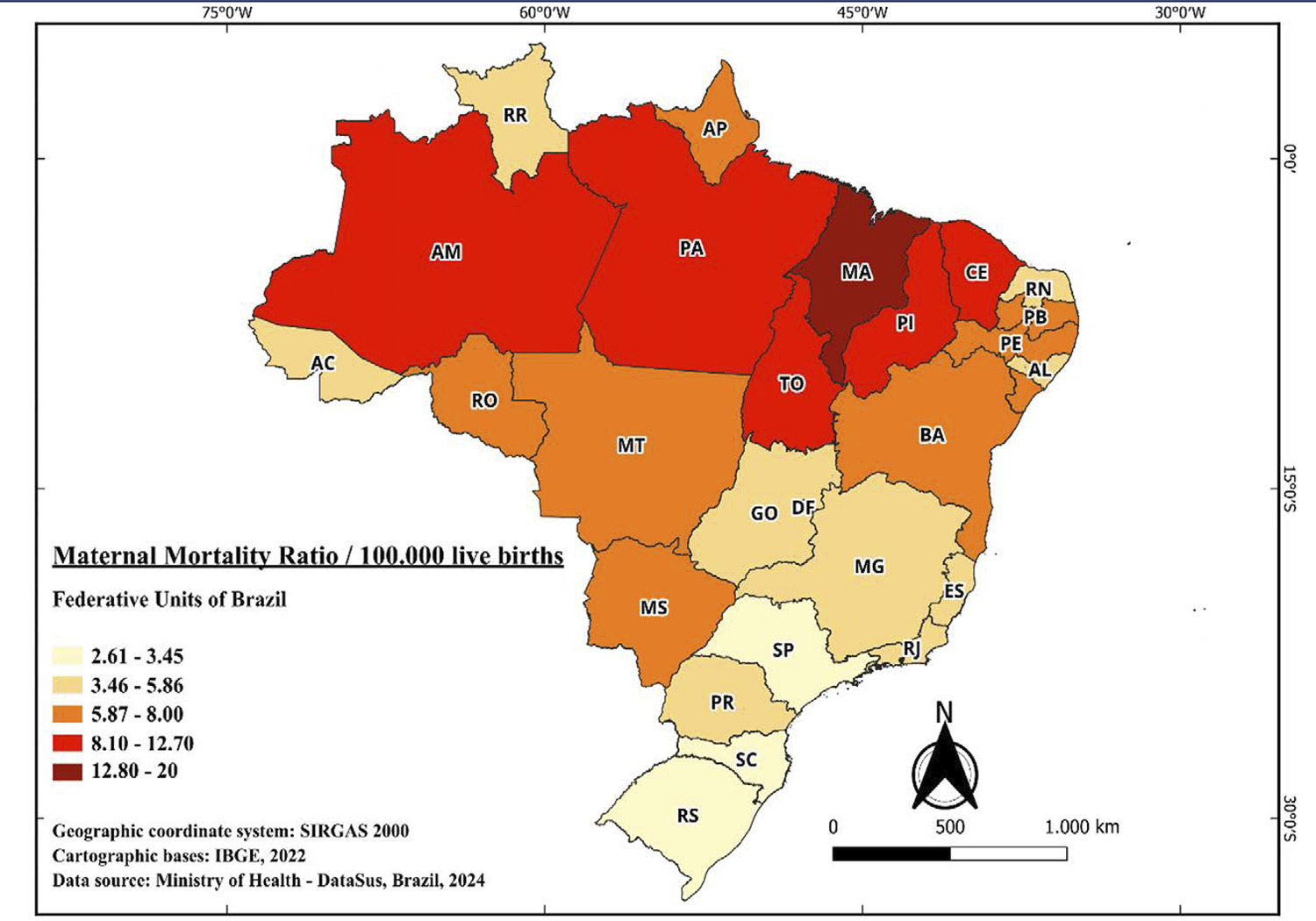Revista Brasileira de Ginecologia e Obstetrícia. 2024;46:e-rbgo65

Eclampsia is a hypertensive disorder that occurs during pregnancy and can lead to death. The literature has gaps by not providing comprehensive data on the epidemiology of the disease, restricting analysis to limited temporal intervals and geographical locations. This study aims to characterize the epidemiological profile of women who died from eclampsia in Brazil from 2000 to 2021.
The maternal mortality data were obtained from the Sistema de Informações sobre Mortalidade, with the following variables of interest selected: “Federative Unit,” “Year,” “Age Range,” “Race/Color,” and “Education Level.” The collection of the number of live births for data normalization was conducted in the Sistema de Informações sobre Nascidos Vivos. Statistical analyses were performed using GraphPad Prism, calculating odds ratio for variables and fixing number of deaths per 100,000 live births for calculating maternal mortality ratio (MMR).
There was a downward trend in maternal mortality rate during the study period. Maranhão stood out as the federative unit with the highest MMR (17 deaths per 100.000 live births). Mothers aged between 40 and 49 years (OR = 3.55, CI: 3.11–4.05) presents higher MMR. Additionally, black women showed the highest MMR (OR = 4.67, CI: 4.18–5.22), as well as mothers with no educational background (OR = 5.83, CI: 4.82–7.06).
The epidemiological profile studied is predominantly composed of mothers with little or no formal education, self-declared as Black, residing in needy states and with advanced aged. These data are useful for formulating public policies aimed at combating the issue.
Search
Search in:


Comments